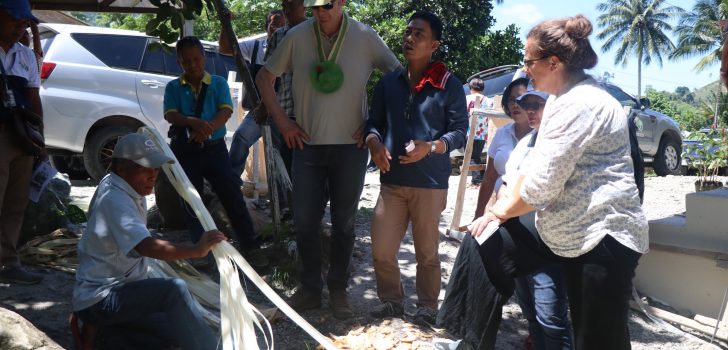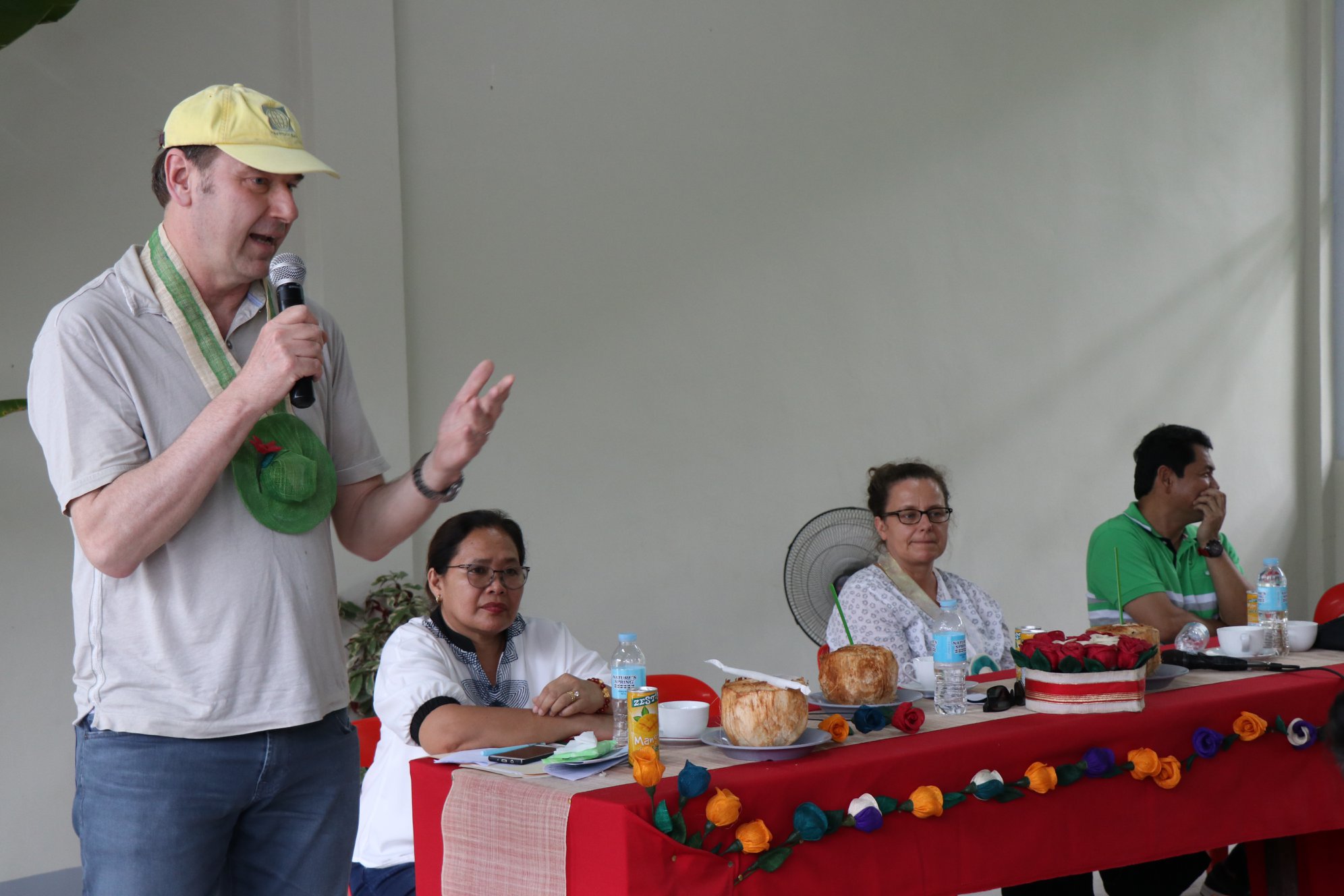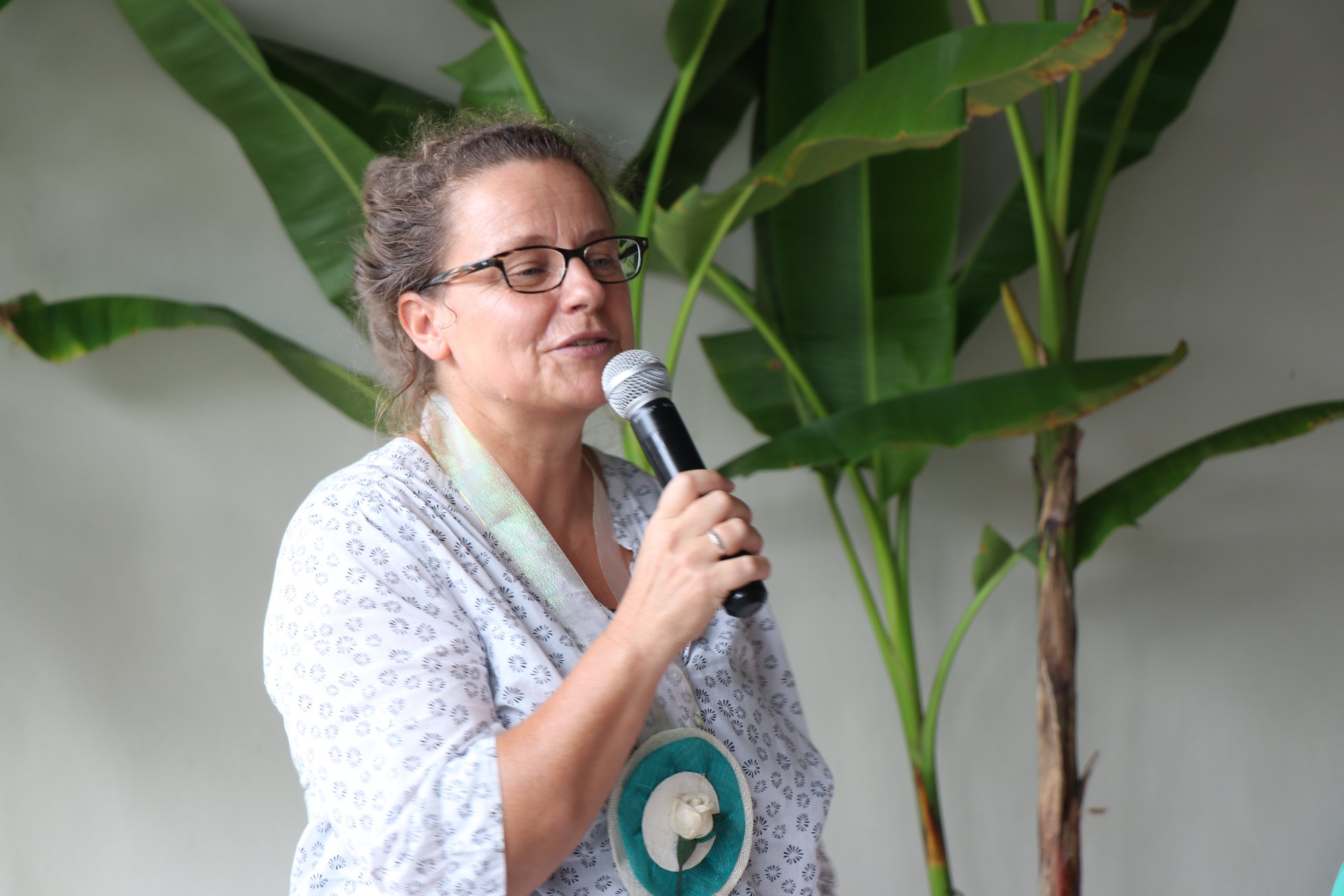 Operations In Charge Dante Tamaro (center) explains to the WB officials the manual process of abaca-striping as initial steps in gathering the fibers.
Operations In Charge Dante Tamaro (center) explains to the WB officials the manual process of abaca-striping as initial steps in gathering the fibers. Sarangani Abaca farmers impress WB team
Kiamba, Sarangani Province – From being small-time local player, the indigenous peoples here have become a bulk producer of quality fiber for domestic markets across the country.
The United Maligang Farmers’ Multipurpose Cooperative (UMFMPC) composed mostly of the indigenous T’boli tribe had an impressive showcasing of their improved facilities, production, business plan, and marketing strategies when officials from World Bank visited them recently.
“It’s interesting to hear your stories and know that the project helped you a lot,” said World Bank Global Agriculture Martin Van Niewkoop.
“Knowing your stories, we believe that you can do better in the implementation,” Niewkoop added.
UMFMPC received P35.7 million for their project named Enhancement of Abaca Production, Processing and Marketing of High Quality Fiber through the assistance of the Department of Agriculture – Philippine Rural Development Project (PRDP).
The amount is spent to fund the establishment of a processing center and warehouse , the ongoing procurement of 6-wheeler hauling truck, one delivery truck, 74 units of portable stripping machine/dying shed; 56 units of heavy duty spindle stripping machine; pressing machine for abaca baling and fork lift, among others.
DA-PRDP, a six-year rural development project, is jointly funded by the World Bank and national government through the DA with the counterpart of the local government units.
World Bank Lead Agriculture Economist and PRDP Task Team Leader Frauke Jungbluth said the purpose of their recent visit was to gather feedback from the project beneficiaries which can be tackled in the forthcoming World Bank Mission, the bi-annual inspection and evaluation of WB funded project.
“We want to know if how far you have gone with the project and if the project really changed your lives,” Jungbluth told the farmer-beneficiaries.
With DA-PRDP’s intervention they are now producing of close to 1,000 kilograms of fine quality fiber per hectare from the previous production of 500 kilograms. But their objective is to reach 2,200 kg per hectare after three years of full operation.
They have a total of 370 members with a total production area of 3,044 hectares.
The remote T’boli community is also a recipient of 4.3 kilometer Kayupo-Maligang Farm-to-Market Road, amounting P47.46 -million, which has solved the transportation woes of the community.
Farmer-beneficiary Alvin Cabales, one of the UMFMPC Board of Directors, said the projects has drastically changed the lives of the community. It even encouraged them to expand their farms.
“Before, we use carts and horses to transport our products, but now, we have our own motorcycles to use for delivery to the market,” said Cabales.
“I already expanded my area for abaca production because of the opened opportunities,” he added. (By Sherwin Manual/PSO and Carl Ulyses Aguillon/RPCO12/ Photos by RPCO 12



